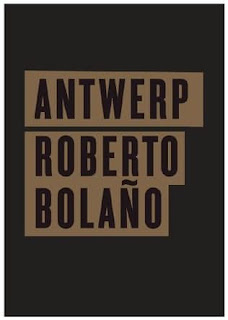Antwerp
By Roberto Bolaño
Although Roberto Bolaño only died in 2004, it appears that virtually all of his work will soon be available in English translation; at least four more books are slated for an English-language release over the next twelve months or so (and a recently discovered ‘complete’ novel from 1989, entitled El Tercer Reich (The Third Reich), has already been published in Spanish, with an English version tentatively scheduled for 2011). The enormous interest in Bolaño’s work derives from the acclaim for his final novel, 2666, a massive 898-page masterpiece, which I reviewed earlier this year.
Now, however, his first novel, Antwerp – which was written in 1980, but remained unpublished until 2002 – has finally been released in English. On the face of it, this book couldn’t be more different from Bolaño’s later work. Prior to writing Antwerp, Bolaño mostly wrote poetry, a fact that shows in the book’s composition. Unlike the sprawling narratives of 2666 or The Savage Detectives, Antwerp is a slim novella of only 76 pages, which is composed of a series of discrete aphorisms, written in impressionistic, fragmented language. But despite these differences of form, the book does occupy itself with many of the themes and situations that recur in his later fiction: Antwerp is a book about a murder, which offers portraits of a variety of shadowy figures who may or may not be linked to the crime.
Even more than Bolaño’s mature novels, Antwerp is an explicitly avant-garde work; although it is still a sort of experimental detective novel, the larger narrative of the book is intentionally disjointed and concealed. Some details, however, are clear: the book is set in Barcelona, and revolves around a murder at the Estrella del Mar campground, which is situated near some tennis courts and a horse-riding school (where a young South American writer named Roberto Bolaño is living). It appears that, on the night of the murder, many of the people at the campground were watching a movie projected onto a bed-sheet stretched between two trees. The police investigate several people in relation to the murder, including a small hunchbacked man, an English writer, and an unnamed woman. There is also some discussion of a shadowy figure named Colan Yar, who many people in the novel seem to be running from.
But this description makes Antwerp sound more straightforward than it is. Indeed, I was able to piece together the above details only after reading the book twice; this is a novel written to be read not just once, but again and again. Antwerp is definitely not a book for readers who want straightforward plotting or clear narrative resolution. Moreover, it’s not a good place to start for anyone who hasn’t read Bolaño before (for those readers, I would suggest either beginning with 2666 or his collection of short stories entitled Last Evenings on Earth).
For those readers who enjoy experimental fiction, however, Antwerp is a fascinating read, which recalls a great number of other writers and works, including Alain Robbe-Grillet, William S. Burrough’s The Naked Lunch and The Ticket that Exploded, J.G. Ballard’s The Atrocity Exhibition, Julio Cortazar’s short fiction, and Samuel Beckett’s Molloy, among others. In the very fact that it recalls so many other books, though, Antwerp does ultimately feel like an apprentice work; it’s excellent, but isn’t the equal of the exceptional books that Bolaño would go on to write.
That being said, I’m already convinced that Bolaño is one of most important writers of the last several decades (I’ve begun resurrecting my half-remembered Spanish in the attempt to read his work in the original language), and even the publication of his minor work is a legitimate literary event. In this sense, the next few years promise to be an exciting time for readers of literary fiction as Bolaño’s obras completas are made available to English speakers.




No comments:
Post a Comment